
The new media legislation proposed by the coalition government is aiming to preserve the elements of media ownership regulation and registration contained in the current Media Industry Development Act for now while eliminating the restrictive and draconian content regulation provisions of the Act.
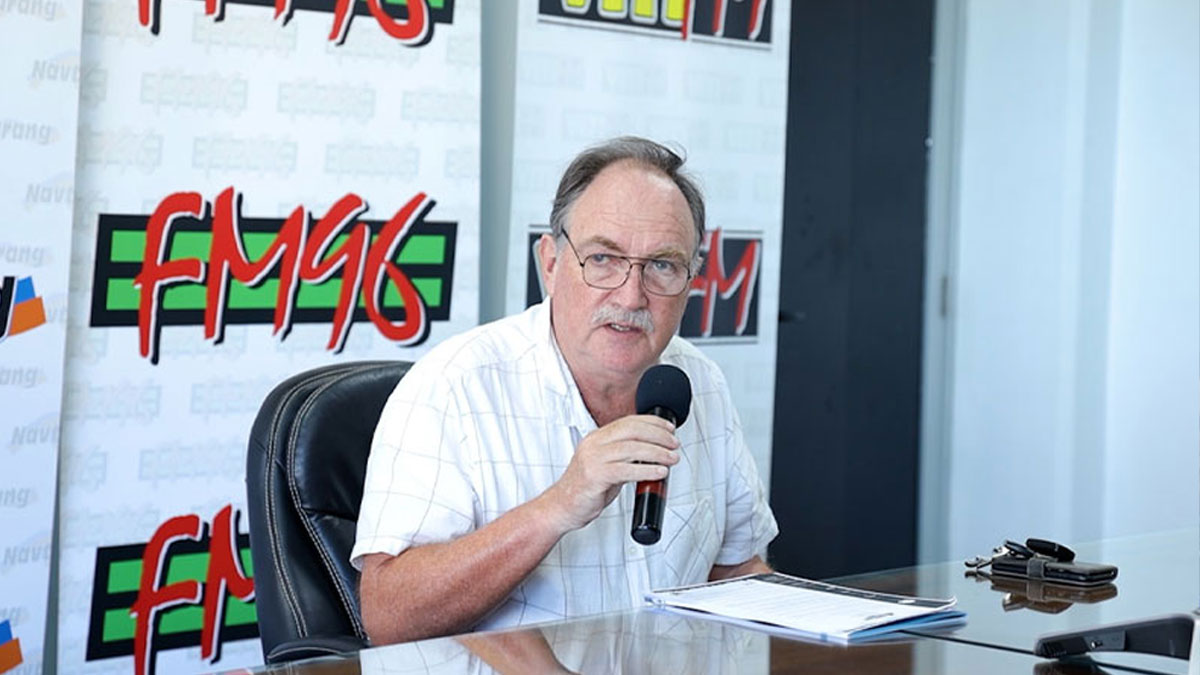
The Chairman of Communications Fiji Limited, William Parkinson says the Prime Minister’s announcement that a Bill will be tabled to repeal the whole Media Industry Development Act 2010 is exciting news as the media industry in Fiji has really struggled since the Decree came into play.
Parkinson says they are very relieved and this has been a long time coming.
He says the Act had placed unnecessary restrictions not only on journalism but on the growth of the media industry.
The CFL Chairman says with the lifting of cross media and foreign investment regulations, he expects exciting times ahead for the Fiji media.
He says there is a lot of work to be done to rebuild the Fiji media to what it once was as it was really once was the pride of the Pacific.
CFL which is the parent company of fijivillage, FM96, Legend FM, Viti FM, Navtarang and Radio Sargam, is now looking forward to more opportunities and a fair go after the repealing of the Media Act.
Parkinson says he is also excited about the return of the Fiji Media Council.
He says the Fiji Media Council will work with the Fijian Media Association to grow the industry and also focus on retraining a generation of journalists who have grown up in a climate of fear.
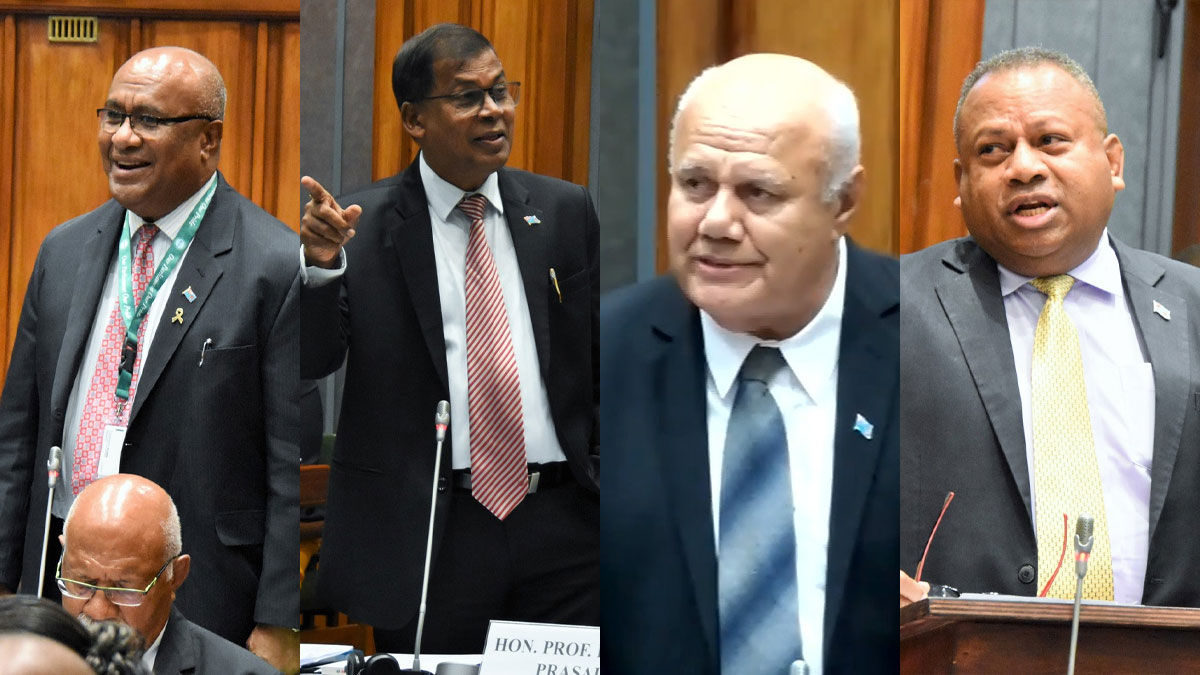
The Deputy Prime Ministers in the coalition government say it is only right that the Media Industry Development Act 2010 is fully repealed while the Leader of the Opposition has not made his stance known for now.
Deputy Prime Minister and Minister for Finance, Professor Biman Prasad says it is a great decision to repeal the Media Act as it will allow the media industry in Fiji to develop its own regulatory mechanism.
He says the Media Act was designed to stop the media from holding the government to account, stop the media from critically analyzing the issues on the ground and also stop the media from expressing the views of the public.
He says when they were in the opposition, they always opposed the Media Decree which was later on converted into an Act and was done by the previous military government where it continued to treat the media to this day with contempt.
Professor Prasad says they now have come into government and have given that freedom to the media with the repeal of the Act which was one of the promises and decisions they made throughout their campaign and he hopes the media industry will start planning and organising to put in place a very powerful and well organised Media Council which can help the media industry to regulate themselves.
Deputy Prime Minister and Minister for Civil Aviation, Viliame Gavoka says he is thrilled about the tabling of this Bill and they have welcomed it.
He says it started off as a decree before it became a law and it was draconian.
He adds they have been against this law for years because it has limited our freedom.
Deputy Prime Minister and Minister for Communications, Manoa Kamikamica says the Act was wrong as it was ill-conceived and there was no proper public consultations.
He also says the media industry has been living under a repressive environment for a long time and it is about time to be free now.
Meanwhile, Leader of the Opposition, Inia Seruiratu says he understands that submissions have been made to the committee and he is not sure whether they were represented or not.
He says he also understands there are some parties that want the Act repealed and so those are the options that they as parliamentarians being the legislators will be responsible for when it comes to the floor.
The Bill to repeal the Media Act 2010 is expected to be tabled in parliament next week.
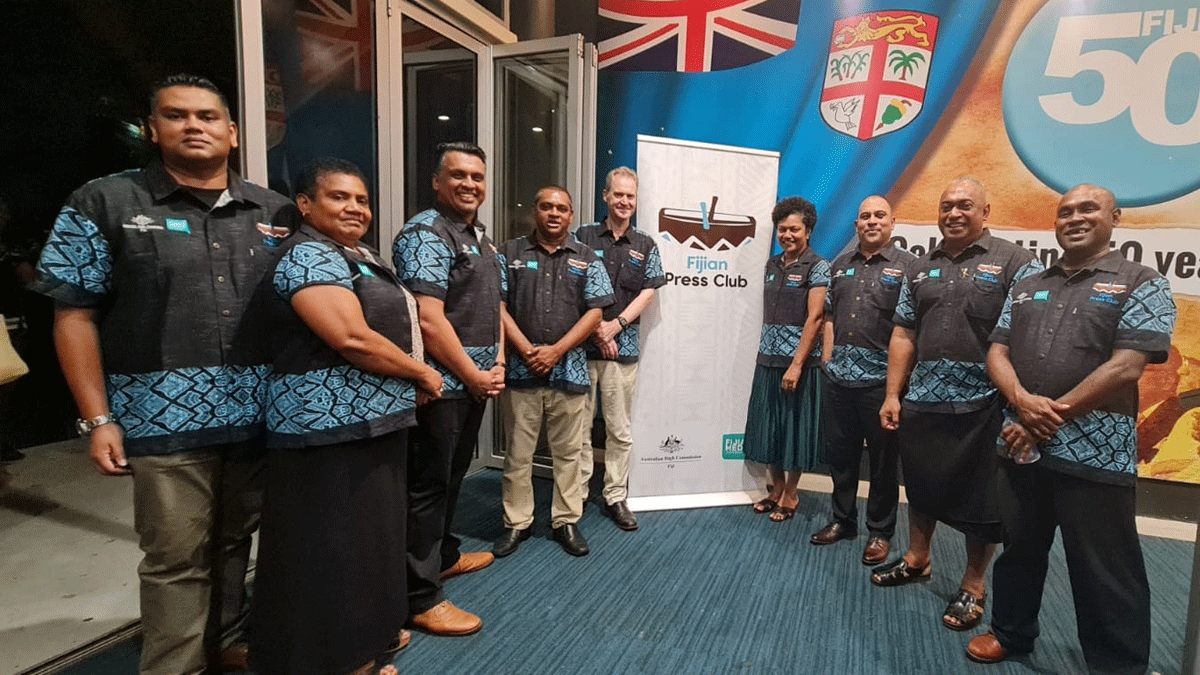
The Fijian Media Association has welcomed and celebrates cabinet’s decision to table a Bill in Parliament to repeal the draconian Media Industry Development Act 2010.
They say this has been a long time coming for Fiji’s media workers who have struggled to operate freely under this law while carrying the threat and burden of the punitive law every day they have turned up to work for the past 12 years.
In a statement they say the threat and that burden is being lifted.
It further says the news has been welcomed by editors and journalists as a historic moment for the Fiji media and a ‘big win for democracy and media freedom’.
General Secretary Stanley Simpson says the MIDA Act 2010 and its subsequent amendments has restricted media development and suppressed media freedom in Fiji for over 12 years and the FMA in its submission to government has been adamant that the Act be repealed.
He says the excessive fines hanging over the heads of the media organisations and editors was threatening and not conducive to media freedom, and designed to be vindictive, punish and control the media rather that encourage better reporting standards.
Simpson says the FMA advocated to bring back the media freedom Fiji was renowned for prior to 2006 including bringing back the situation that existed prior to 2006, and that is media self regulation through the Fiji Media Council, an organisation made up of media organisations and community reps to handle complaints and media standards.
The Association says in its 12 years of existence no cases appeared before MIDA or its non-existent Tribunal, highlighting how ineffective it has been for media development, but solely designed to be used as a tool for media suppression.
It says the backbone of any democracy is an independent, strong and responsible media that reports, critiques, analyses and stimulate debates that are vital to the democratic process.
The FMA expresss its appreciation to the coalition government for following through on their promise to remove the draconian law, and allow the media to do its work in holding government and people in authority accountable.
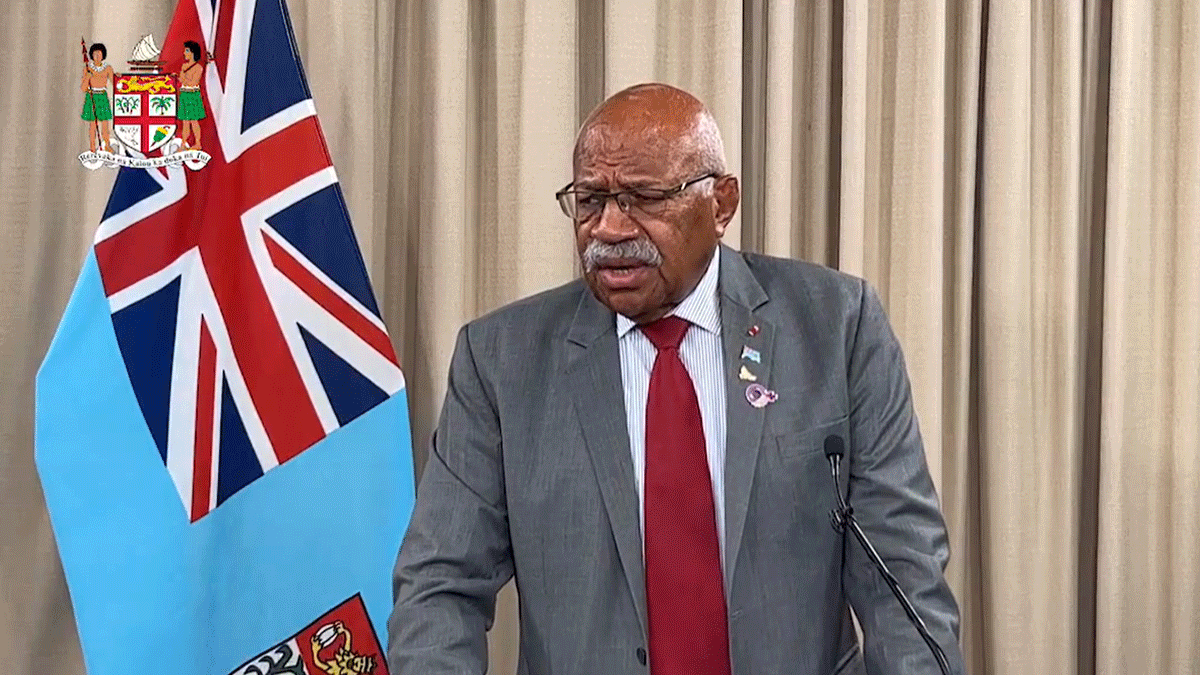
Prime Minister Sitiveni Rabuka confirms that cabinet has approved the tabling of a Bill to repeal the Media Industry Development Act 2010 in Parliament.
Rabuka says the Bill will repeal the Media Act as a whole.
The Prime Minister adds the decision is pursuant to the People’s Coalition Government’s commitment to growth and development of a strong and independent news media in the country.
Rabuka says it has been said that media freedom and freedom of expression is the oxygen of democracy.
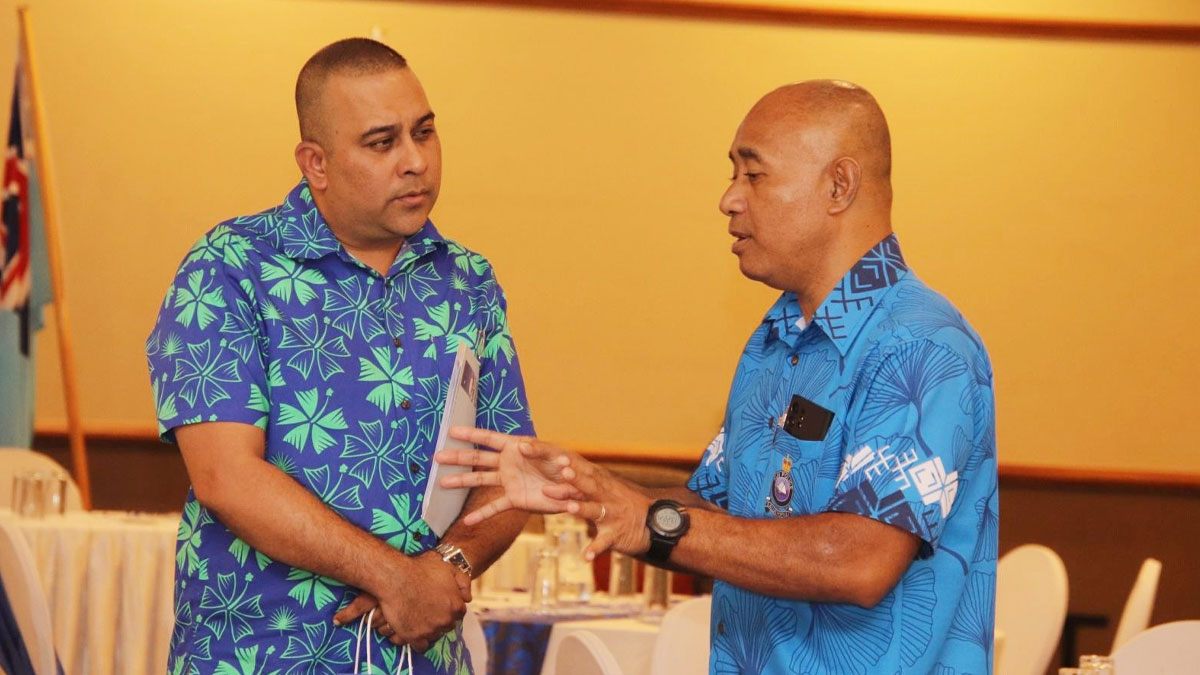
The most important thing from my perspective is a strategic partnership - a partnership where the media should not be seen as the enemy or a nuisance.
This was stated by the News Director of Communications Fiji Limited and Fijian Media Association executive, Vijay Narayan while speaking at the Media Session of the Police Consultative Session at the Grand Pacific Hotel this afternoon.
Narayan says the media and the police have the same goals and objectives focusing on truth, integrity, accountability and transparency.
He says the media is ready to have regular meetings with the senior command of the Police Force, and also extended an invitation to the Acting Police Commissioner and his senior officers to visit individual media outlets to understand the work of the media.
Narayan says at times there is a disconnect where the only time the media is called in when the police want to say something or maybe when there is a major issue at hand.
Narayan says he remembers the Crime Stoppers Board also included the members of the media and the media organisations.
He adds they fought the fight together.
Narayan encouraged Police to engage more with the public through press conferences as the Police Force also needs to be humanised, and not just focus on posting on their social media page.
The CFL News Director says at times they may not be on the same page but the tough questions need to be asked.
Fiji Sun’s investigative journalist Ivamere Nataro says some people she speak to her do not understand the work of the police and keep requesting for frequent updates.
Nataro says in this digital age, news spreads faster on social media and if the police do not open up to the mainstream media, it is another thing people look at.
She further says Police need to engage more with the community amd show that they care.
While responding to the media, Acting Police Commissioner Juki Fong Chew says he agrees with whatever was stated, and moving forward they will try and improve, and there is nothing to hide in this world.
But Chew gave an example where a story was published that someone was tortured.
He says it just went out and they don’t know whether it was true or false but when the matter was investigated, the matter just died out.
He says if they manage to find this person, he or she will be taken to task for giving false information.
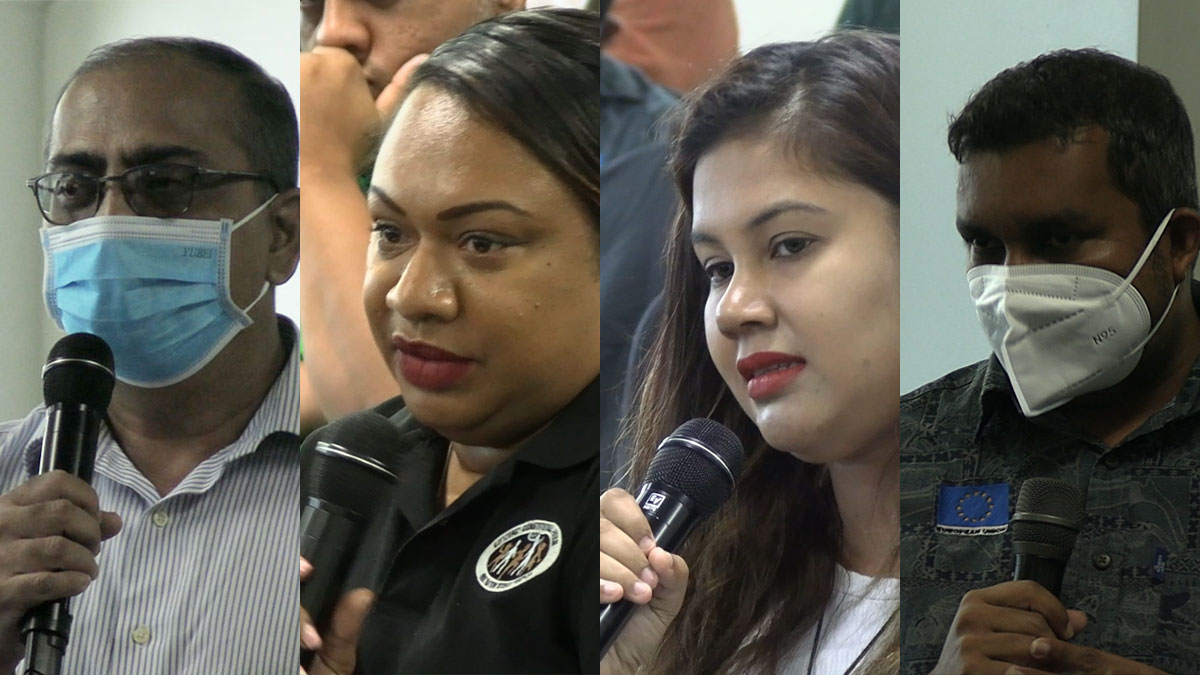
Citizens Constitutional Forum Legal Officer Milika Ligabalavu says politicians and public officials should refrain from taking action that undermines the independence of the media.
Ligabalavu says this includes interfering politically in the operations or taking commercial control over regulatory bodies of commercial or community or public service media or putting pressure on online platforms to engage in content regulation.
Dialogue Fiji Director, Nilesh Lal says the cross media ownership provision in the Media Industry Development Act created a lopsided environment where the state broadcaster has a major undue advantage and they need to make things fairer for the private players in the media market.
While opposing the draft Media Bill, the Head of USP’s School of Journalism, Doctor Shailendra Singh says the government should have no involvement in the news media.
He says they recommend that the draconian and punitive measures in the Act should be taken away completely as there are enough legislations in place to deal with any serious transgression by the news media.
Dr. Singh adds replacing the Media Council with the Media Act was taking the axe to a fairly minor problem.
Meanwhile the United Nations has welcomed the move by the coalition government to repeal the Media Industry Development Act and would like to provide guidance on media laws to make it compliant with international standards.
While speaking on behalf of the United Nations Human Rights Office, Resident Coordinator’s Office, UNDP and UNESCO during the consultation on the draft Media Bill, Releshni Karan says people need to be afforded the same rights offline as they are protected online such as their freedom of expression and this is applicable regardless of frontiers.
Karan says any future Act should ensure the rights of people in places other than traditional media and that it is respectful of human rights and dignity and promotes safety of journalists.
She says they should also look at taking out the seditious provisions from the Crimes Act which was traditionally used against the journalists.
Karan further says women journalists should be protected from harm or harassment both online and offline and the current draft does not have any reference to privacy or human rights issues and it should be included.
Click here for full coverage on the public consultation on the Draft Media Bill
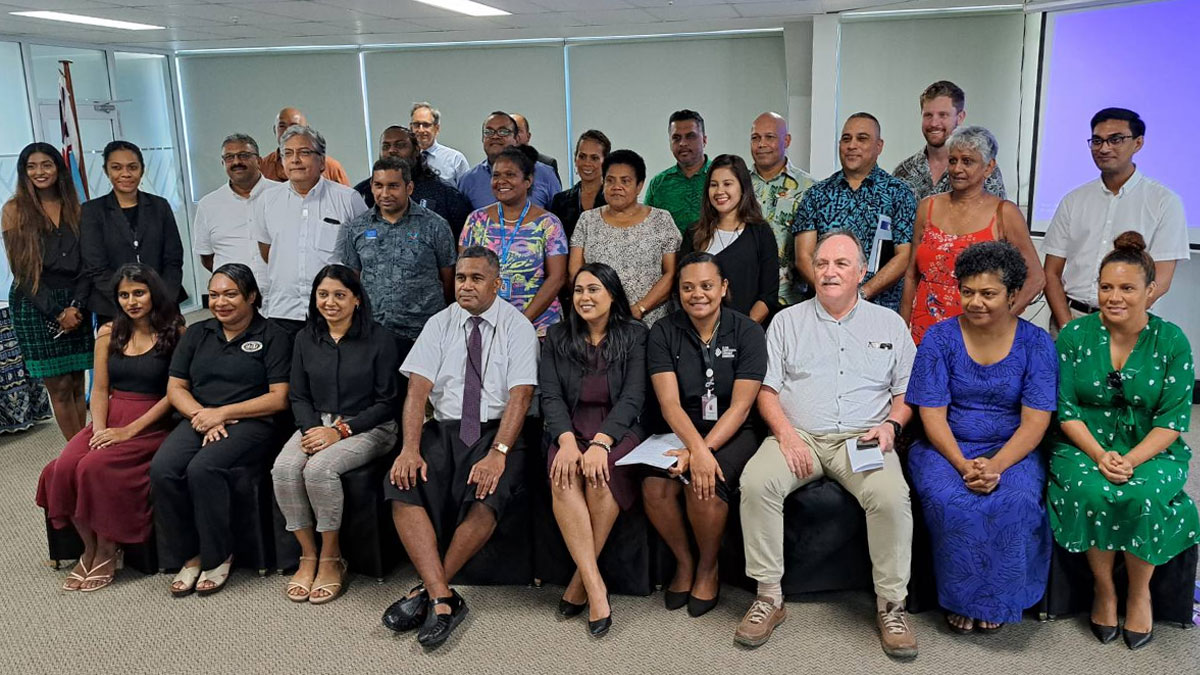
The Fijian media industry has strongly called on the coalition government to repeal the Media Industry Development Act which first came as a decree in 2010, and to stick to the promise they made during the campaign period.
In a submission signed by Communications Fiji Limited Chair William Parkinson, Fiji TV Limited Chair Deepak Rathod, Fiji Times Limited General Manager Christine Lyons and Fijian Broadcasting Corporation Limited General Manager Tarun Patel, the media organisations say they cannot see the need to separately register the media and it appears to be based on the practice of registering newspapers that dates back to the 19th century.
They say all media organisations are already registered as legal entities, like most businesses, as incorporated companies both public and private.
The media owners say any attempt to separately register media organisations opens the possibility of intimidation through potential deregistration.
The organisations further say the cross media ownership provision appears to be out of date and the current reality is that all media organisations are already cross media entities with online presence in various forms.
They say by removing this restriction, it will free up all media organisations to fully achieve their potential increasing, not decreasing, competition to the benefit of the readers, listeners and viewers.
The organisations also say that at a time when Fiji is actively seeking new investment, they cannot understand why the Fiji media industry should be denied the opportunity to attract foreign investment.
They say if the industry is to grow and develop, foreign investment both in terms of capital funds and knowledge is critical.
The organisations say the media industry has faced, over the last 16 years, unprecedented political interference and control and they are desperate to get on with the task of rebuilding the industry and profession and this can only start with repealing the Media Industry Development Act.
Speaking on behalf of the media owners, CFL Chairman William Parkinson says we should start with a clean slate and then start a wider conversation whether there is a need for regulation and are these issues covered under other forms of legislation or control.
He says there should not be any involvement of politicians or bureaucrats in the Fiji Media Council and as before, it should be community driven and it does not need a legislation.
Fiji TV Chairman, Deepak Rathod says the reasons these provisions in the Act was brought in did not have validity and they should forget about it.
Consultation on the Draft Media Bill which was partly drafted by prominent lawyer, Richard Naidu was held at Suvavou House today, with majority of the speakers wanting a total repeal of the media legislation.
Solicitor General, Ropate Green says the consultation phase is important as they will take the public submissions to cabinet for the final decision before any bill goes to parliament.
Green also says they understand how the Media Industry Development Decree came into place in 2010 without consultation, and encouraged the participation of the public to get the best outcome.
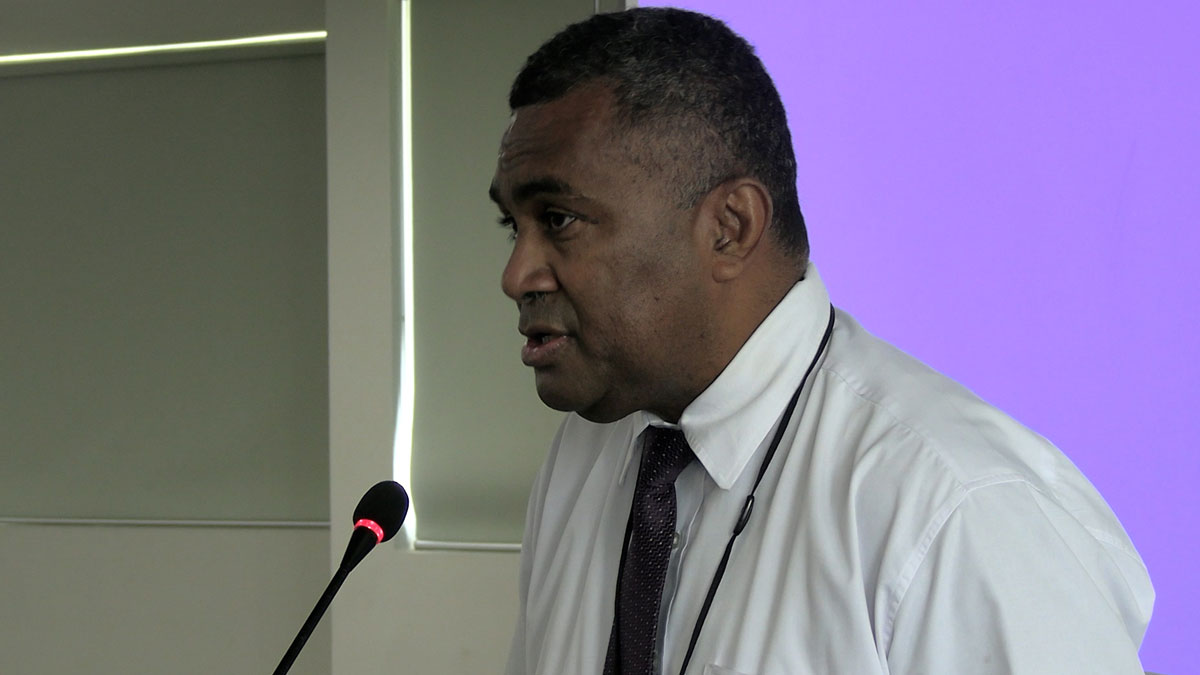
Solicitor General, Ropate Green says the coalition government is committed to reviewing the Media Industry Development Act to remove certain controversial provisions in response to concerns raised by relevant stakeholders.
While delivering the opening remarks on the first public consultation on the draft Media Bill, Green says they are here to listen to their voice and listen to what they have to say in relation to the Bill.
He says once the public consultation is completed, they will incorporate all the comments into the draft Bill and submit a paper for the cabinet to endorse the Bill before it is tabled in Parliament.
Green says after this, parliamentary processes will take its due course.
Prominent lawyer Richard Naidu who also partly drafted the Media Bill says the media has legitimate viewpoints that the government has to consider and there is a balancing to be done. Naidu says the views have to be taken into account and the government has got to decide what is the right balance.
He adds the government will not try to regulate the content in any way which is a very positive thing for free speech.
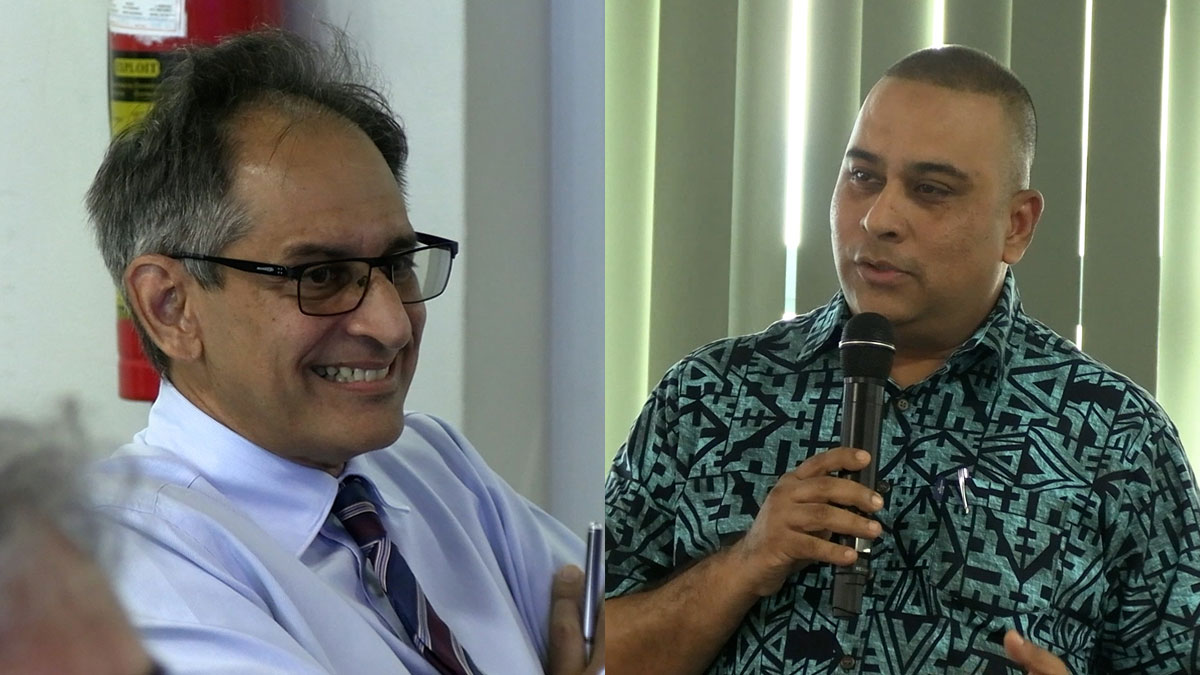
The Fijian Media Association in very strong terms is calling on the coalition government to completely repeal the Fiji Media Industry Development Act and have fresh consultations on a new proposed document, if any.
While speaking on behalf of about 150 media workers during a consultation on the draft Media Bill, Communications Fiji Limited’s News Director and FMA Executive, Vijay Narayan says the media workers have had to live with this law that was forced through in the form of a Media Decree in 2010 after a few hours of ‘consultations’.
He says the workers in the industry have suffered a lot and have been facing the pointed end of the spear on a daily basis.
Narayan also says they need investment and growth so they can do more.
He says with this new draft, they understand that the content regulation is completely out however, the restrictions on overseas investment and cross media also stunts their growth as media workers.
Narayan says there is also a real fear because of the fact that legislating media registration will be controlled by politicians and there can be a huge risk of de-registration if any government is unhappy with the news reporting of a media entity.
The FMA Executive says the previous government that took the Fiji Times to court did not take issues through the Media Industry Development Act but through various laws already in place.
He says there are different rules that have already been tested and have been used.
On cross media, Narayan says they as media workers agree that there should be a level playing field that this government preached about and all the industry players agree that there should be no cross media laws.
He asks why should there be a law that maintains an uneven playing field.
Prominent lawyer Richard Naidu who says that he had some input in the draft Media Bill says all aspects in terms of the news media should be opened up.
He says the Defamation Act which is now 50 years old needs comprehensive review and it does not give enough latitude to journalists to go out and demand accountability from public officials.
Naidu says Crimes Act, issues of online safety and privacy need to go through a much wider consultation.
He says the point has been made that if you allow foreign ownership, you get better investment and better input and possibly a stronger news media but on the other hand, not all foreign ownership is benign and they need to be a bit more careful about what they wish for.
Naidu says the priority in this Bill was to get rid of all the content regulation in the Act and that is done and he hopes that the concerns of the journalists are addressed as there is no Media Tribunal and Media Industry Development Authority.
He says he agrees with media organisations that the idea to restore the Media Council is a great thing and it should be media driven and government should not have a real role in it.
He says the problem with going to the Media Council previously was that if someone went to them, they waived their legal rights and could not go to court.
Naidu says bringing this process back is a good thing and deals with the issue of content.
He says a valid view point has also been raised about registration.
The Fijian media industry with the FMA have called on the coalition government to repeal the Act and if there is a need for another law, then it should go through consultation and due processes.
Monday 20/03/2023

The explanatory notes of the draft Media Bill states that it is not intended as a complete reform of Fiji’s media law landscape.
It says wide-ranging and more comprehensive consultation will be required on this, to take into account required changes in laws concerning defamation and personal privacy, new technologies and new platforms such as social media.
The coalition government also says consultation on foreign ownership and cross-ownership rules for media services will also be necessary.
It says for now it is necessary to free Fiji’s mainstream news media from the restrictions under the current Media Act.
The draft Bill says as a commitment of the Government to address issues that are undemocratic, threatens the freedom of expression under section 17 of the Constitution and hinders the growth and development of a strong and independent news media in Fiji, the Media Ownership and Registration Bill 2023 seeks to amend the Media Industry Development Act 2010 accordingly.
It also says any excessive concentration of ownership in a medium would ordinarily be regulated by the Fijian Competition and Consumer Commission Act 2010.
The Bill also says prosecutions may only be brought within six months of the commission of any offence and may only be brought with the permission of the Director of Public Prosecutions.
The purposes of these limitations (which existed in the Act) are to avoid or at least limit, as far as possible, any unnecessary or politically-driven prosecutions against media organisations.
It says prosecutions must be timely and the DPP has the right, in the exercise of his own judgment, to decline to proceed with a prosecution.
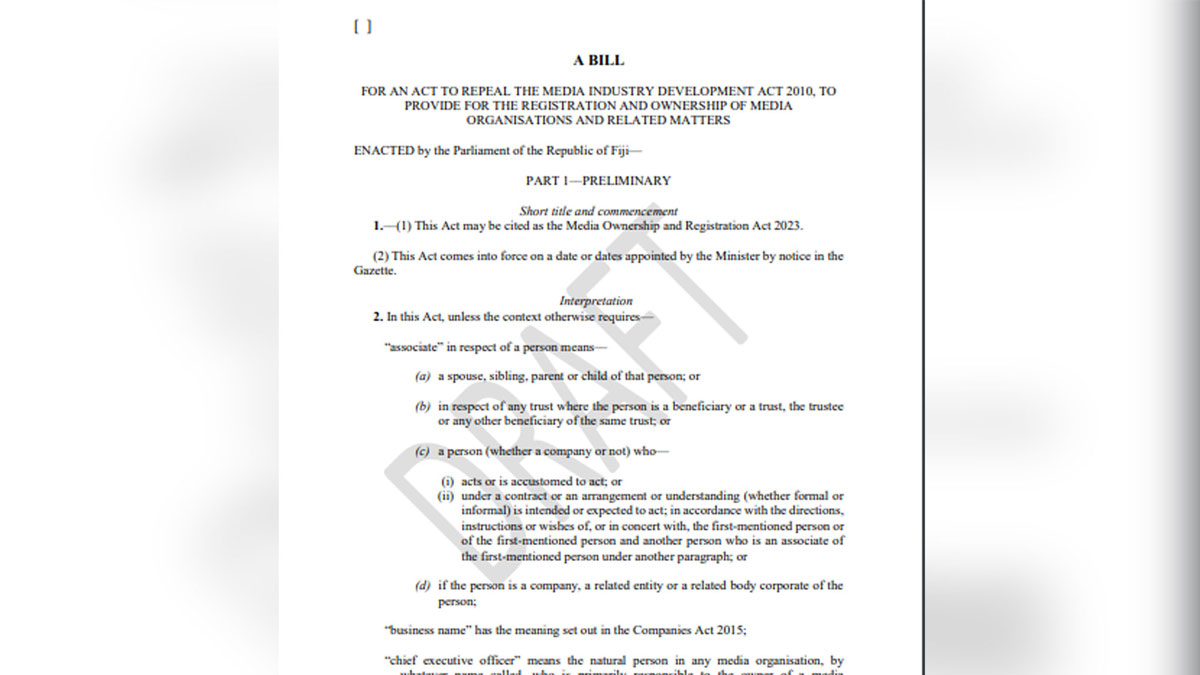
The new media legislation proposed by the coalition government is aiming to preserve the elements of media ownership regulation and registration contained in the current Media Industry Development Act for now while eliminating the restrictive and draconian content regulation provisions of the Act.
The coalition government will have public consultation on the draft Media Ownership and Registration Bill 2023 this Thursday that seeks to amend the Media Industry Development Act 2010.
In the case of every media organisation registered under the Act, the editor must be ordinarily resident in Fiji; and at least 90 percent of its ultimate beneficial ownership must be held by citizens of Fiji who are ordinarily resident in Fiji.
If a media organisation is at any time in breach of this for a period of more than 30 days, that media organisation and every ultimate beneficial owner of the media organisation commits an offence punishable, in the case of a natural person, to a fine not exceeding $10,000 and in the case of a company, to a fine not exceeding $50,000.
The draft Bill further states that a media organisation may only operate a media service using one medium, and where a person or an associate of that person has ultimate beneficial ownership in any one media organisation, that person may hold ultimate beneficial ownership in only one other media organisation operating in a different medium, not exceeding 5 percent of the total ultimate beneficial ownership of that media organisation. The cross media law does not apply to a media organisation in which the State owns a majority shareholding.
In this case, only the state owned broadcaster, FBC continues to enjoy the cross media exemption as allowed in the current Media Industry Development Act where the government owned entity is operating radio and television stations.
The Bill says the operation by a news organisation of websites or social media pages shall not be considered a “different medium” if such websites or social media pages comprise or support a media service of that media organisation or contain substantially the same content as that media service.
Any media organisation or any person in breach of any provisions of this part shall be liable on summary conviction in the case of a natural person to a fine not exceeding $10,000 and in the case of a company to a fine not exceeding $100,000.
The draft Media Bill also says no media organisation or officer of a media organisation which is a public listed company shall be liable for the offence if that person proves to the court, on the balance of probabilities, that the person had no actual knowledge of any matter in relation to the sections comprising a breach of the Act.
The proposed law says it is fair to say that even the ownership regulation and registration provisions contained in the Bill may be viewed as unnecessary or even restrictive.
It says whether these provisions remain in future is a matter for wider consultation.
The proposed law says the principal purpose of retaining the registration requirements is to ensure that mainstream media organisations remain legally accountable as such; and that anyone wishing to take legal action against them (whether in civil proceedings for defamation or any criminal proceedings) is able to ascertain from the public record (and the organisations’ own websites if any) the persons who are legally responsible for publication of any impugned content.
It says this reflects the purpose of the old Newspaper Registration Act (Cap. 106) which was repealed by the Act (but whose elements were retained in the Act).
It further says changes to cross-ownership rules belong to the wider consultation process.
Stay tuned for the latest news on our radio stations

